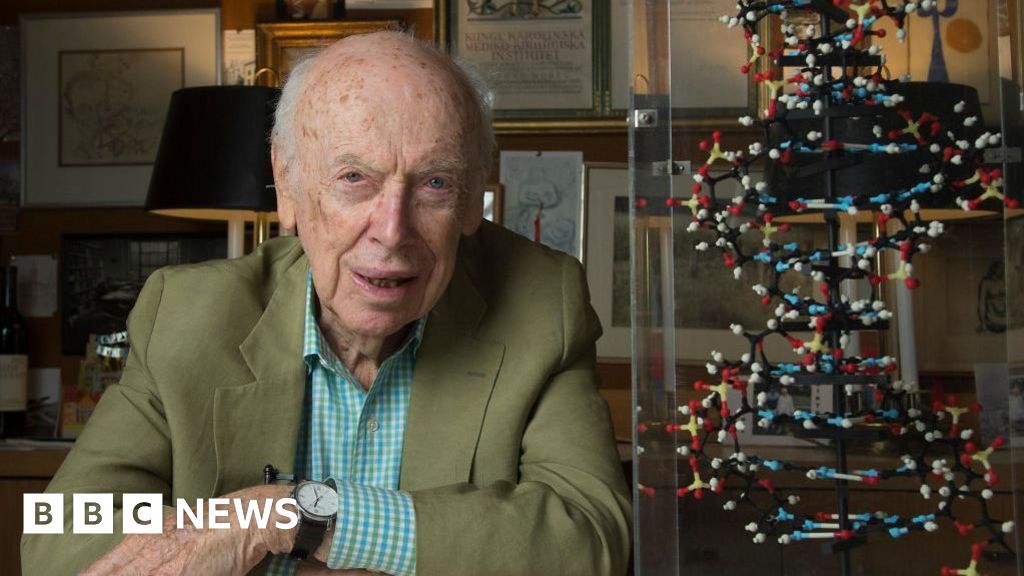James Watson: Controversial discoverer of 'the secret of life'
8 hours ago Share Save Sam Woodhouse BBC News Share Save
Getty Images
In February 1953, two men walked into a pub in Cambridge and announced they had found "the secret of life". It was not an idle boast. One was James Watson, an American biologist from the Cavendish laboratory; the other was his British research partner, Francis Crick. Their discovery - of the structure and function of deoxyribonucleic acid or DNA - ranks alongside those of Mendel and Darwin in its significance to modern science. The full Promethean power of their achievement would slowly emerge over decades of research by fellow geneticists. It also opened a Pandora's Box of controversial scientific and ethical issues - including human cloning, designer babies and "Frankenstein foods". Demonstrating that DNA has a three-dimensional, double-helix shape allowed Watson and Crick to unlock the secrets of how cells worked; the means by which characteristics were passed down through generations. "When we saw the answer we had to pinch ourselves," said Watson. "We realised it probably was true because it was so pretty." The discovery won them a Nobel Prize for Medicine in 1962 and a permanent place in the historic ranks of great scientific thinkers. It also guaranteed that, if they said something controversial, it made headline news. And Watson had plenty to say, most notoriously speculating about a link between race and intelligence.
Gonville & Caius College At Cambridge,
Continue Reading on BBC News
This preview shows approximately 15% of the article. Read the full story on the publisher's website to support quality journalism.
